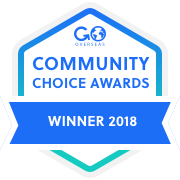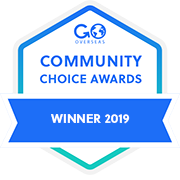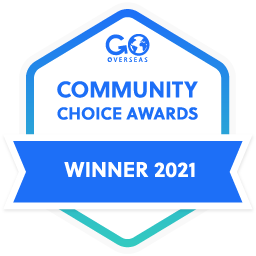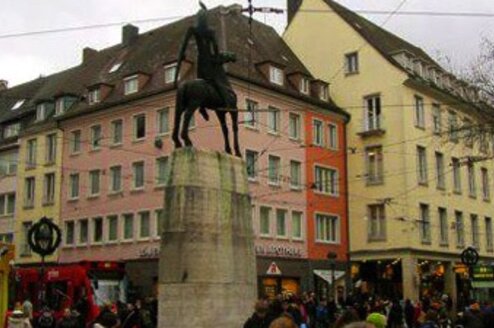- Spain
- Granada
About Program
Many travelers who visit Granada insist it's the must-see city in all of Spain. With one of the clearest windows into Spain's unique historical symbiosis of Islam, Christianity, and Judaism, the IES Abroad curriculum takes full advantage of Andalusia and all southern Spain has to offer including cultural excursions
Two semesters of college-level Spanish are required to enroll in the Intermediate Program and four semesters are required to enroll in the Advanced Program. Both Intermediate and Advanced students are required to take a Spanish language course alongside English taught area studies courses. All majors are welcome to apply. Students can immerse themselves in Spanish language and culture by living with a local family in a homestay, or meet other international and local students in a residence hall and Colegios Mayores.
Video and Photos
Diversity & Inclusion 💙
BIPOC Support
LGBTQIA+ Support
Studying abroad as part of the LGBTQIA+ community can present unique opportunities and challenges in exploring a new culture, so we have compiled resources to help prepare you and support you along the way.
Neurodivergent Support
We have not only compiled resources on mental health and self-care to help prepare you and support you along the way, but we also have a dedicated Student Affairs staff that are available for you to contact from the United States and once in your host country.
Accessibility Support
Impact 🌎
Sustainability
- Moving toward more sustainable Headquarters and Centers abroad
- Producing printed materials on 100% recycled paper with soy-based ink and in fewer quantities
- Hosting events and conferences in LEED-certified buildings
- Purchasing carbon offsets for staff air travel
- The formation of the IES Abroad Sustainability Team—a dedicated group of volunteers responsible for implementing sustainable practices across our organization. The team comprises of members across our Centers, departments, teams. It is truly a global effort, and we are better for it.
Program Highlights
- The IES Abroad Center gives students the space to study on the terrace or in the library with high speed internet and printer access
- IES Abroad offers students the chance to expand their study abroad experience by taking an internship
- All elective courses center around Spanish culture, heritage, arts, and society
- Students that stay in Colegios Mayores in the fall semester will spend their first month of the program staying with a local host family
- Past cultural excursions have been to Morocco, Gibraltar, Seville, and Cabo de Gata, among other locations
Popular Programs

Designed to improve your Spanish proficiency, students are placed into either the Intermediate or Advanced Spanish Program. Intermediate Program students take IES Abroad courses in both English and Spanish. Advanced Program courses are conducted entirely in Spanish, including study at the Universidad de Granada. Both options introduce you to Spain’s Moorish heritage and Jewish past, and its continuing links to North Africa through Islamic and Contemporary North African Studies.





























Hi Giselle, I think they can. However, I would not recommend it actually. Classes at the university are taught completely in Spanish and also at the level for native speakers and would be very difficult to keep up with if you are not near fluency. Regarding what section you are placed in, I know with my program, IES, you take one placement test before you arrive and two more after you get there...